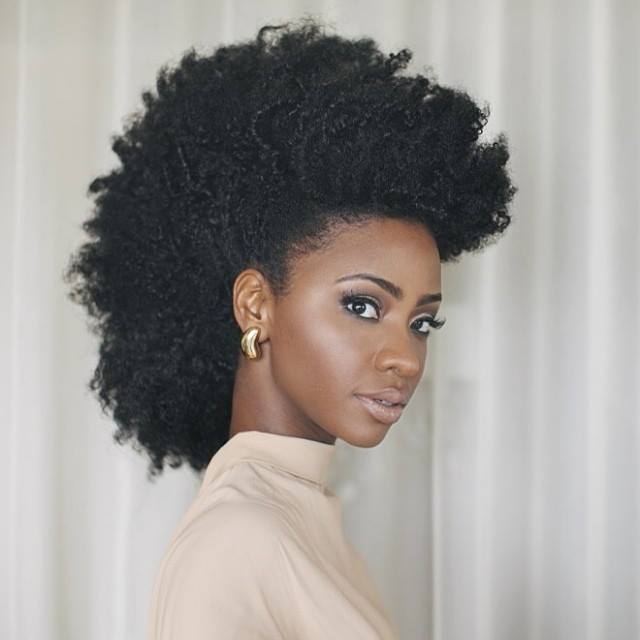
When I first went natural, I was afraid of wearing my hair out in its transitioning state for obvious reasons. The battle between the two textures, straight and curly, on my head made my hair very delicate and susceptible to breakage easily. So, I wore my hair in protective styles such as braids, twists and even wigs* for a year.
Also, it was impossible to style it in any way except for a bun due to the fact that I could not get the competing textures to cooperate.
When my hair got long enough for me to finally chop off my straight ends, I was apprehensive about the reactions to my natural hair. After people had grown used to seeing me with long braids and silky wigs, how would they react to me with my short curly afro?
At the time, I was employed in a fine dining restaurant as a waitress, and dealt with high profile VIP clientele, so I was unsure of how not only the guests, but also my managers would react to my change in appearance. Not surprisingly, at first, when I was getting the hang of how to manage my natural hair, I remember one coworker asking to touch my hair, and then reacting in surprise, “It feels like a Brillo pad”.
You can imagine my embarrassment. Yet, she was completely unphased by the low blow she had just dealt me. A few customers gave me odd looks; but I pressed on because I felt what I was doing was important.
It is of great significance for natural women to dispel the notion that our natural hair is unsightly, unruly or unkempt. Most people have only ever seen black women with hair extensions*, wigs*, braids or other protective styles.
They are incredibly ignorant of what black women look like naturally, so their reaction of shock or discomfort is simply due to this unfamiliarity, nothing else.
The only way to do this is my impressing upon others the familiar sight of natural hair. At times, it is tough and lonely, but what gives me strength is the notion that this struggle is what will pave the way for our daughters, our granddaughters even, to feel normal and proud to be just the way they are.
I love your story so much! During my transition, I ended up wearing small twists all over my head. I did not get many comments. The most memorable one was from a white male co-worker who asked how they stayed twisted without unraveling. I told him that my hair curls on itself. He could not comprehend how that happens; so I concluded that it was the nature of “afro” hair.
That last statement you made just filled my heart; it is everything:
“…but what gives me strength is the notion that this struggle is what will pave the way for our daughters, our granddaughters even, to feel normal and proud to be just the way they are.”
That neck thogorgeous
Great article. When I transitioned for the last time it took me awhile to become comfortable with my hair. I actually received more complements from non-blacks and non-family members than my own family. Once my hair grew out…everyone loves it now and wants to know how I take care of my hair.